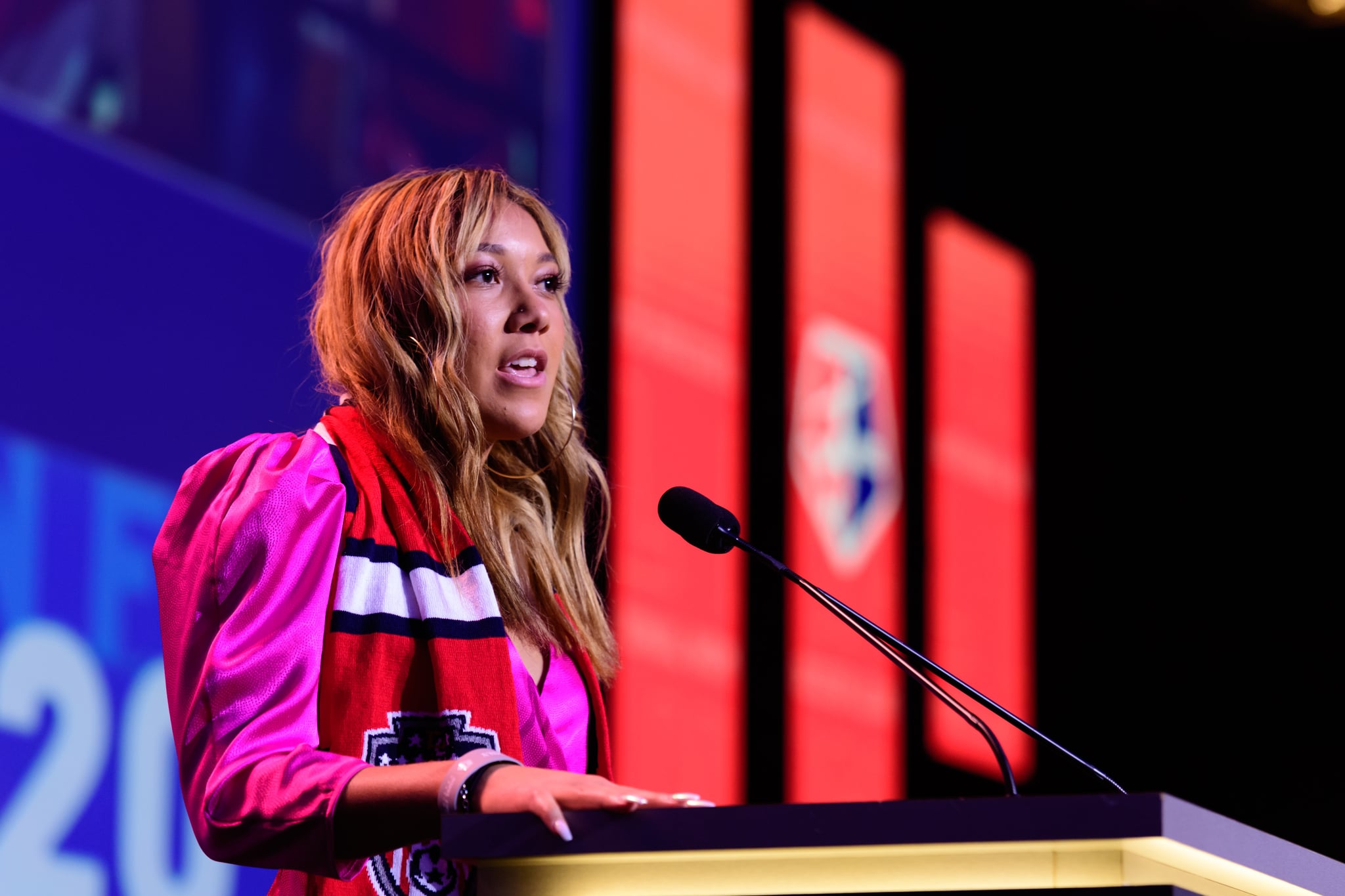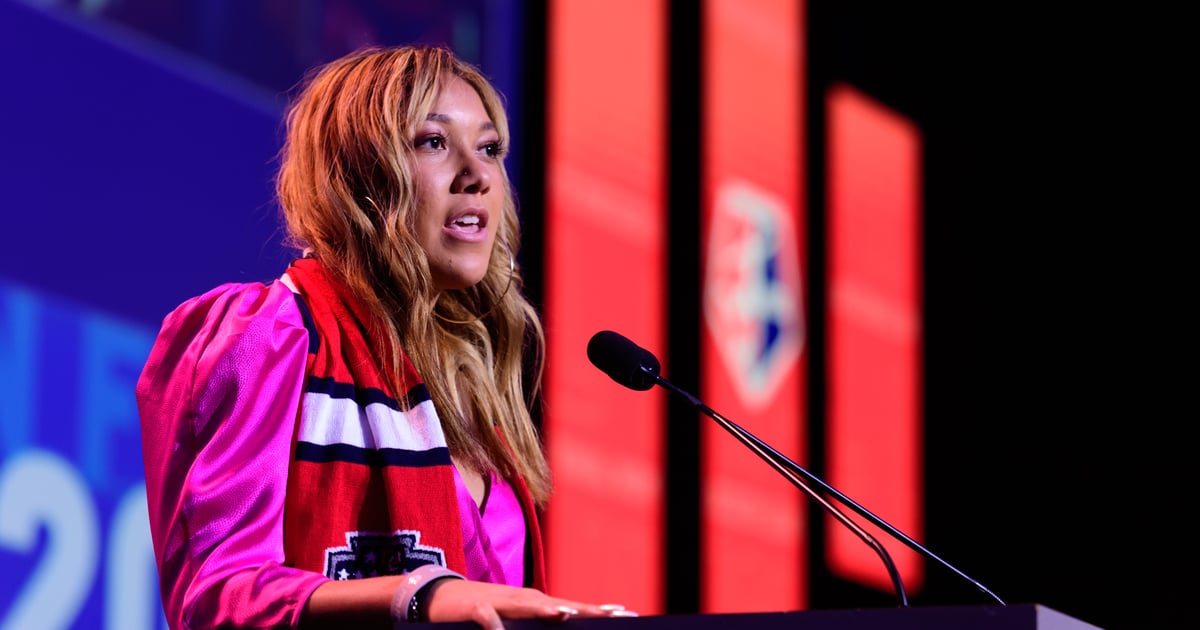
Editor’s Note: In September 2020, Kaiya McCullough left the Washington Spirit, a National Women’s Soccer League team she’d been drafted to earlier that year. In August 2021, McCullough bravely spoke out to The Washington Post about the true reasons she stepped down: a horrific pattern of verbal and emotional abuse by then-coach Richie Burke, which had started long before McCullough had joined the team. In this op-ed, McCullough reflects on her difficult decision to speak about the abuse, highlights the systemic failures in women’s sports that keep athletes in danger, and explores what would need to change to end the horrific cycle for good.
When I first came forward about my experiences while playing at the Washington Spirit, a professional team in the National Women’s Soccer League (NWSL), I had no idea the magnitude of the conversation I was starting. I wasn’t thinking about the ripples it would cause in the soccer world — I just wanted to say my piece and protect the women who came after me. Turns out, a lot of people had similar stories, and by going on the record, I opened the floodgates to a much larger reckoning.
If I’m being honest, I don’t like talking about what happened there anymore, nearly two years out. I’ve found my peace and want to move on with my life. But I recognize the power of storytelling, the power of vulnerability, and the power of my voice. There are so many athletes, especially girls, women, and nonbinary folks, who suffer abuse in their respective sports. We are past due for change.
I can’t say what happened was surprising. Abuse in sports is systemic and insidious — always there, but not always apparent. In soccer specifically, the culture of abuse, whether emotional, verbal, or sexual, has been so engrained into the psyches of young players that it is often difficult to realize it’s happening as you get older. As I began to speak out about my own experiences, I was staggered by the number of players I talked to that shared a similar tale.
While I was playing in the NWSL, there was no collective bargaining agreement in place to protect me, even if I did feel brave enough to come forward. There were no protections against abuse, no protocols for reporting abuse, and no way to stop retaliation.
There are many reasons abuse in sports is so prevalent. For one, there’s a lack of accountability from those in power when abuse happens, and a lack of policy that standardizes responses to abuse and prevents retaliation. Without proper accountability, predators continue to be hired despite their records of wrongdoing. Additionally, racism, misogyny, and the lack of respect for the experiences of noncisgender men create a culture that perpetuates and protects abuse and abusers.
While I was playing in the NWSL, there was no collective bargaining agreement in place to protect me, even if I did feel brave enough to come forward. There were no protections against abuse, no protocols for reporting abuse, and no way to stop retaliation. My coach had near-unilateral control over my contract, which gave me my housing, my salary, my means of living, and my future career in soccer. Only when I decided I no longer wanted to play soccer professionally anymore did I feel comfortable enough (and safe enough) to tell my story. Not every player, or former player, has that luxury. Livelihoods are at stake, and futures are often on the line.
The above factors, and others, have created a cycle that looks something like this: Coach abuses player, whether verbally, emotionally, physically, or sexually. Often, the player, fearing for their career, whether that be playing time, reputation, access to college coaches, or resources, never reports it. Even if they do, the coach is (best case) removed from their position, remaining free to find a job elsewhere. Very often, the consequences are even less significant, and the coach is simply reprimanded. Abuse is reinforced in the player’s head as inconsequential — they (and all their teammates who are watching this play out) are made to feel like when it happens to them, it’s not important, and they are not worth protecting. This pattern of thinking is instilled in players as they move through every level of play — youth, college, professional. Abuse becomes harder to recognize because it has been ingrained within them. It’s normal.
It will take a lot of change — from the top down and from the bottom up — to create a culture that prioritizes player safety over one that perpetuates abuse. There is a lot of progress to still be made, but there are plenty of amazing people doing the work to get there. If it weren’t for Molly Hensley-Clancy, the reporter who wrote the article I went on record for, I’m not sure I would’ve ever told my story. She knew something wrong was happening and empowered me and others to find our voices. She shared our story with the world. More people need to be willing to stick their necks out when they see injustice around them. Solidarity is an oath that must be taken every single day.
Only when we stand tall, speak out, and confront abuse in sports will we be able to stop it. Only when we hold those in power accountable for their harm and complicity will we create change. Only when we unify across sports, across all identities, will we see progress.
I want to be a part of that. As much as I wish I could go back in time and give myself a hug, I wouldn’t change what happened. I am stronger, braver, and fiercer than ever. It set me on a path to pursue my wildest dreams and gave me the courage to continue fighting for the issues, and people, I care most about.
